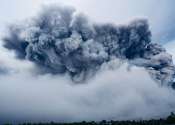Rocket team to discern if our star count should go way up
The universe contains a mind-boggling number of stars—but scientists' best estimates may be an undercount. A NASA-funded sounding rocket is launching with an improved instrument to look for evidence of extra stars that ...









